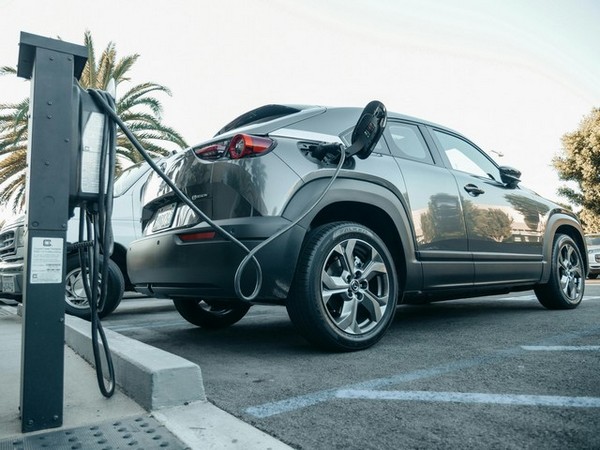Celebrating Progress: India’s Journey Towards Electric Vehicle Adoption on World EV Day
As the world comes together to celebrate World EV Day, it’s an opportune moment to reflect on India’s significant strides in adopting electric vehicles (EVs) across various categories. While the progress is commendable, it is essential to recognize that there is still a long journey ahead for the nation to fully embrace green mobility solutions.
The Shift Towards Green Mobility
According to the Government of India’s Vaahan Dashboard data, there is a notable upward trend in the adoption of electric vehicles. This shift is not just a fleeting trend; it represents a growing commitment to sustainable transportation and a cleaner environment. The data reveals that consumers are increasingly opting for electric alternatives, signaling a change in mindset towards greener mobility.
Three-Wheelers Lead the Charge
One of the most remarkable trends in EV adoption is evident in the three-wheeler segment. In 2024, a staggering 53.61% of all new three-wheeler vehicles purchased were electric, making this category the frontrunner in EV penetration. This surge can be attributed to the practicality and cost-effectiveness of electric three-wheelers, which are widely used for public transport and goods delivery in urban areas.
Encouraging Signs in Two-Wheelers
The two-wheeler segment is also showing promising signs of growth in EV adoption. So far in 2024, electric vehicles account for 4.97% of all two-wheeler sales. While this percentage is lower than that of three-wheelers, the two-wheeler market holds immense potential for further growth. Given that two-wheelers dominate India’s overall vehicle sales market, the increasing consumer demand for cost-effective and environmentally friendly alternatives is expected to drive significant growth in this segment in the coming years.
Four-Wheelers: A Slower Transition
In contrast, the four-wheeler segment is experiencing a slower adoption rate, with electric cars making up only 2.14% of total car sales in 2024. Despite this relatively low percentage, the landscape is changing. The increasing availability of diverse EV models, coupled with government incentives aimed at promoting electric mobility, is expected to catalyze growth in this segment. As consumers become more aware of the benefits of electric cars, including lower operating costs and reduced emissions, the adoption rate is likely to rise.
Electric Buses: A Sustainable Public Transport Solution
Interestingly, the penetration of electric buses is outpacing that of electric cars, with 3.20% of all new buses sold in 2024 being electric. This trend underscores the growing emphasis on sustainable public transport solutions as cities strive to reduce emissions and promote cleaner alternatives in mass transit. Electric buses not only contribute to improved air quality but also align with broader climate goals.
Expert Insights on EV Benefits
Samhita Shiledar, Director at RMI, emphasizes the compelling advantages of electric vehicles: "Electric vehicles offer a very compelling solution because they do not emit any tailpipe emissions, which improves air quality and reduces air pollution. They also lower carbon emissions, helping India meet its climate goals. Generally, electric vehicles have lower operating costs compared to internal combustion engine vehicles." This perspective highlights the multifaceted benefits of transitioning to electric mobility.
State-Wise EV Penetration
Examining the data on a state-wise level reveals interesting insights into EV adoption across India. Goa leads the country with an impressive 14.20% of all new vehicles sold this year being electric. Following closely are Tripura and Chandigarh, while Delhi showcases a commendable 10.72% penetration of EVs in total vehicle sales, reflecting the capital’s commitment to sustainable urban mobility. Conversely, Himachal Pradesh reported the lowest EV penetration, with only 1.09% of new vehicles sold being electric, indicating a need for targeted initiatives to boost adoption in less engaged regions.
Dominance of Two-Wheelers in Total EV Sales
In terms of total EV sales across all segments, the two-wheeler category dominates the market, accounting for approximately 51% of total EV sales in India this year. This dominance highlights the critical role that two-wheelers play in the overall electric vehicle landscape, reinforcing the need for continued investment and innovation in this segment.
Conclusion: A Promising Yet Challenging Path Ahead
As World EV Day shines a spotlight on the global commitment to cleaner mobility solutions, India’s data reflects a promising shift towards electrification. However, the journey is far from complete. With significant progress made in the three-wheeler and two-wheeler segments, and a growing awareness of the benefits of electric vehicles, the potential for further growth is immense. As the nation continues to navigate the challenges and opportunities in the EV landscape, the collective efforts of consumers, manufacturers, and policymakers will be crucial in driving India towards a sustainable and electrified future.

